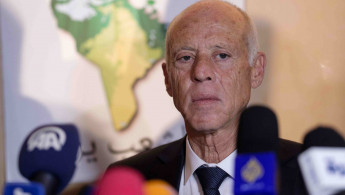Tunisia resumes IMF talks on rescue package: central bank
Tunisia has restarted talks with the International Monetary Fund (IMF) over a rescue package, the central bank said on Saturday, after President Kais Saied's seizure of near total power in July put negotiations on hold.
The bank said the talks follow an official request by Prime Minister Najla Bouden and a meeting this week between an IMF delegation and Central Bank Governor Marouane Abassi about economic reforms and international assistance.
The impact of the pandemic has added to the pressure on Tunisia's efforts to fund its budget spending and debt repayments, raising the prospect of a looming crisis in its public finances.
Talks with the IMF for a package, predicated on painful and unpopular economic reforms, were halted on July 25 when Saied dismissed the government, suspended parliament and assumed executive authority.
Critics of the president described his moves as a coup, while major foreign donors whose financial assistance an IMF deal could unlock have urged him to return to a normal constitutional order.
Saied, who has brushed aside much of the constitution to allow him to rule by decree, appointed Bouden as prime minister last month and has promised to start a dialogue over reforms to the political system.
Foreign donors and the IMF have previously raised the need for broad support for economic reforms, meaning Saied would likely need backing from the powerful labour union and major political players to secure a deal.
The IMF has also urged Tunisia to reform its subsidies, its public sector wage bill and its loss-making state-owned companies.
Saied has not set out a major economic policy but has focused in public comments on the need to end corruption and on efforts to curb price speculation by traders.
(Reuters)





 Follow the Middle East's top stories in English at The New Arab on Google News
Follow the Middle East's top stories in English at The New Arab on Google News


